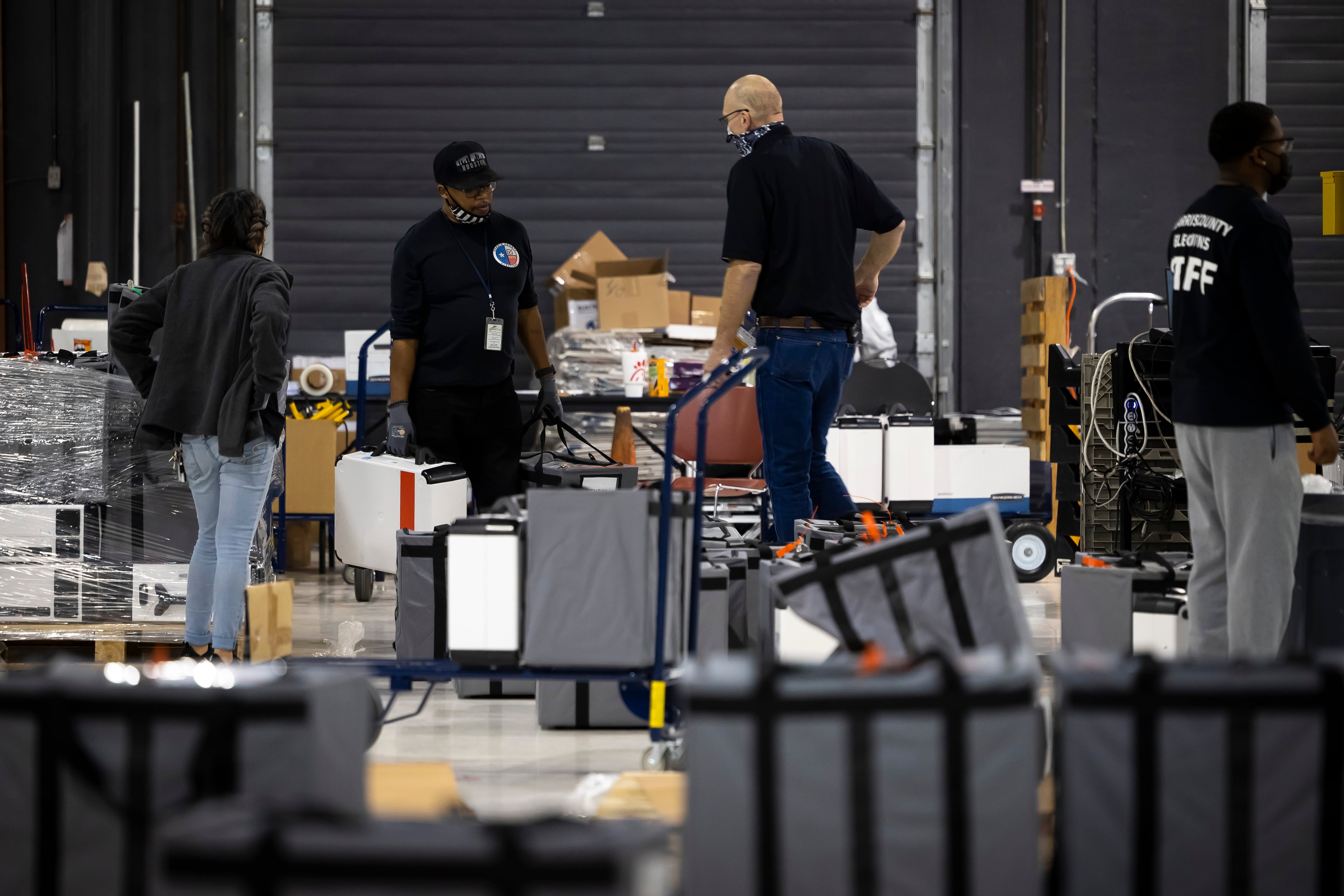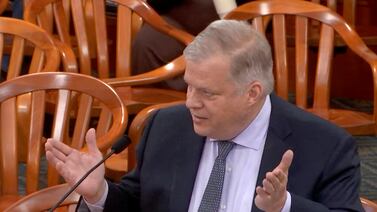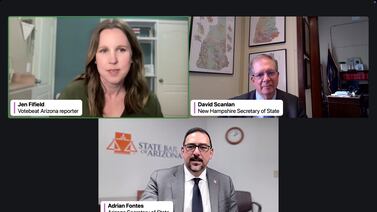Votebeat is a nonprofit news organization reporting on voting access and election administration across the U.S. Sign up for Votebeat Texas’ free newsletter here.
The Secretary of State’s Office will again assign state inspectors to observe the handling and counting of ballots and monitor election records in Harris County, it said while releasing a new audit outlining problems with the county’s elections in 2021 and 2022.
The state audit, released late Friday, found that in those years, Harris County election officials did not follow state-mandated rules related to voter registration list maintenance; failed to adequately train election workers, which led to problems at the polls; and violated the law when it failed to estimate and issue the required ballot paper at some polling locations.
Harris County failed to adequately train election workers on how to properly set up and operate the voting system, the audit found, which “may have impacted the high percentage of equipment malfunctions” in the November 2021 constitutional amendment election. The county then did not adequately address these training issues prior to the March 2022 primary, the state said.
Former Harris County Elections Administrator Clifford Tatum did not immediately respond to a request for comment on the audit’s findings. Harris County Clerk Teneshia Hudspeth, who took over running elections last September after state lawmakers passed a law eliminating the election administrator position in the state’s most populous county, said in a statement that her office “will continue to ensure that the concerns that plagued the now-defunct Elections Administrator’s Office are not revisited.”
In the audit report, the Secretary of State’s Office said current Harris County election officials, who didn’t oversee the elections included in the audit, have worked to address the problems and correct the county’s procedures.
Other counties audited for the 2021-22 election cycle included Cameron, Eastland and Guadalupe. The report says election officials in those counties have improved record keeping, chain of custody procedures and election worker training.
The House Elections Committee is set to discuss the audit’s findings and the management of voter registration data in the state on Monday.
Last fall, a preliminary report of an audit specifically about Harris County’s November 2022 election found the county had different numbers of registered voters than the state, and different numbers of absentee ballots sent out, though it didn’t detail the causes of the discrepancies or suggest they influenced the election outcome. That report also said the county failed to adequately train election workers and failed to supply some polling locations with enough ballot paper.
The final audit released Friday echoed the findings in the earlier report.
Audits began after the 2020 presidential election
The state began auditing counties after the 2020 presidential election, in response to baseless claims of voter fraud. The audits aim to examine counties’ election procedures and evaluate whether election laws are being properly followed.
Harris County is dominated by Democrats and often the focus of election conspiracy theories. It’s been audited twice so far. The first time was in 2021, when the Secretary of State’s Office ordered a “full forensic audit” of the state’s two largest Democratic counties — Harris and Dallas — and the two largest Republican counties —Collin and Tarrant. That same year, lawmakers passed a sweeping overhaul of voting laws that included a provision requiring the Texas secretary of state to conduct an audit of four randomly selected counties’ elections.
In 2022, officials with the agency drew four county names out of a bucket — and Harris came up again.
Although the audit has found no evidence of widespread fraud in any of the counties reviewed, auditors have twice flagged problems in Harris. The audit report covering the 2020 election said the county had improper chain of custody procedures at some of its polling locations, and discrepancies in electronic poll book data.
Last week, during an annual training of election officials from across the state, Secretary of State Jane Nelson conducted the drawing of the four counties to be audited for the 2023-24 election cycle: Brazoria, Bell, Val Verde, and Real.
No evidence of fraud, but other problems with elections surface
As for Harris, the heavily Democratic county’s handling of elections has made it a target for years. The problems with the 2022 election prompted Texas Republican lawmakers to pass a law that abolished the elections administrator position in Harris County. The county challenged the law in court, and lost. Last fall, election administration duties were transferred to the county clerk, and voter registration duties are now the responsibility of the tax assessor-collector’s office.
Those problems also prompted 21 losing Republican candidates to go to court seeking a redo of the November election. A judge did order a new election in response to a challenge of a single judicial race. He found that more than a thousand votes in Harris should not have been counted because, in most cases, there were deficiencies with two types of forms that some voters have to fill out at the polls.
Three candidates dropped their lawsuits, and a judge, dismissing the remaining challenges, said that, although the county did make errors, there was not enough evidence to order a new election.
Last week, Harris County District Attorney Kim Ogg said an investigation by the Texas Rangers found no evidence of fraud in the November 2022 election. One former county elections department employee now faces charges for theft and tampering with government documents. Ogg said investigators found the employee, whose responsibility at the elections department was distributing supplies, improperly worked two full-time jobs during the election.
‘Put a process in place’
Hudspeth has presided over multiple county-wide and municipal elections, including a primary and a runoff election, since taking over last September. Although a storm left at least a dozen locations without power during the primary runoff election in May, voting wasn’t disrupted.
Speaking on a panel at the annual training for election officials hosted by the Secretary of State’s Office in Austin earlier this month, Hudspeth said her office has created a compliance team made up of roughly four people familiar with every step of the election process and responsible for properly documenting it. After each election, that team also digitizes election records and labels them to be used for auditing purposes or during election challenges, if necessary.
“It makes it easier for us to identify when the audit comes, what we need to pull together,” Hudspeth told hundreds of Texas election officials who gathered at the event. “Not every audit is exactly the same. It doesn’t always look the same. It isn’t always the same exact information, but what we have learned over time, is to put a process in place.”
Natalia Contreras covers election administration and voting access for Votebeat in partnership with The Texas Tribune. Contact Natalia at ncontreras@votebeat.org





